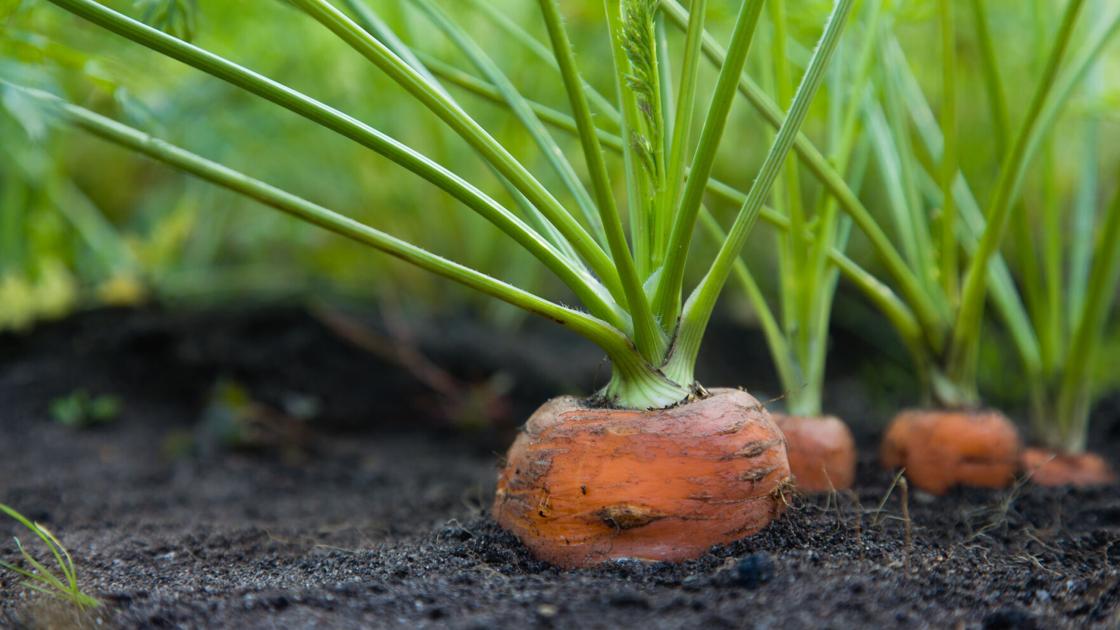Plant nutrients: Strategies for your Tucson garden | Home & Garden

Crops are impressive creatures. They produce their possess food stuff and structural elements out of skinny air, water and daylight. They also need some simple nutrients, which they get from the soil and the h2o.
A few vitamins that are necessary to plants are well-recognised to most gardeners — nitrogen, phosphorus, and potassium, the N-P-K mentioned on all fertilizers. In addition to these a few, vegetation also have to have calcium, magnesium and sulfur. With each other with N, P and K, these six components comprise the macronutrients wanted by all plants. These vitamins have a amount of features in a plant:
- Nitrogen: Encourages plant advancement, significantly environmentally friendly foliage. This macronutrient is regularly desired in our soils owing to the minimal organic content of native desert soils.
- Phosphorus: Needed for root and seedling expansion, flowering and fruit expansion. Also can help with illness resistance. This is a different macronutrient that could be in reduced provide in our native soils.
- Potassium: Desired for in general advancement, notably in fruit trees, and ailment resistance.
- Calcium: Plant composition and growth. Abundant in our soils.
- Magnesium: Essential for leafy progress and sugar synthesis. Especially significant in fruiting crops, these kinds of as tomatoes.
- Sulfur: Also significant for environmentally friendly expansion and fruit progress.
Men and women are also reading…
Vegetation also want micronutrients in compact quantities to perform their cellular capabilities and mature happily. Micronutrients include things like iron, chlorine, zinc, molybdenum, boron, manganese, copper, sodium and cobalt. In our indigenous desert soils, most of these are found in abundance. Even so, these micronutrients are not normally available in a type that plants can take up, owing to the alkalinity of our desert soils. So, plants (specifically non-native ones) may possibly from time to time will need additional iron or zinc. As just one illustration, citrus trees increasing in our soils require typical fertilization with nitrogen, iron and zinc to stay healthy and generate great fruit.
Fertilizers can be pure or synthetic, and can be possibly h2o-soluble (and hence launch into the soil straight away) or slow-launch. My article on natural fertilizers discusses some of the possibilities for gardeners who desire natural fertilizers. The ideal fertilizers for your vegetation are complicated, organic molecules observed in compost and composted manures. You can study much more about these in my article on organic and natural make a difference and fertilizers.
If you are planting in the ground, you can include natural and organic make a difference this sort of as compost, manure or vermicompost (earthworm poop) to the prime of the soil. The critters in the soil will make absolutely sure these are integrated about time into the deeper soil layers. On the other hand, as you would assume, this takes time. It also normally takes h2o, given that these very same critters will normally go dormant or leave for the duration of really dry intervals. So if you want to improve your soil, you will have to have to add equally organic and natural make a difference and h2o.
If you’re getting problems with obtaining crops to grow effectively in your soil, you should consider obtaining a soil exam. This tells you the amount of vitamins and minerals and micronutrients in your soil, as well as the pH, and other qualities. Most plant specialists will explain to you not to use vitamins and minerals willy-nilly unless of course you know for sure what your soil’s nutrient deficiencies are. For a record of laboratories that can do the screening for you, verify out this handy record from the College of Arizona’s Extension office.
If you’re planting in a container, you can have more management. There are a lot of veggie and flower-precise potting soils on the sector with various integrated sluggish-release fertilizers. You can also make your own mix, this kind of as this one particular advised by Thrive and Improve Gardens. Container crops can have lots of organic and natural subject included to the soil, in contrast to in-ground plants. For in-ground plants, you want to limit the organic matter you incorporate to just the top rated layer. This is since when the natural subject decays (i.e. is processed by soil organisms and its nutrients taken up by your plants), your soil volume will reduce. You really do not want your planted tree to abruptly collapse into its planting gap! Having said that, given that you will be replenishing your veggie containers every single rising season, it is wonderful to have loads of natural and organic make any difference.
For additional facts on fertilization, nutrients and soil testing test out these beneficial handouts from the College of Arizona Extension workplace:
For extra gardening facts and articles or blog posts on gardening in the Tucson place, subscribe to the absolutely free Tucson Yard Guidebook publication!
Do you have any gardening matters you’d like to see lined in the Tucson Backyard Information? E-mail me at [email protected] with your recommendations and inquiries. Many thanks for looking at!








